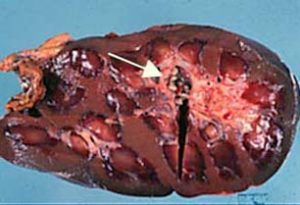Urinary Calculi Prevention
12 February 2018We have had a few cases reported recently of phosphatic calculi in male lambs/tups.
Dietary factors that can cause urinary calculi in male lambs and tups:
- High levels of concentrate feeding – the availability of phosphorus is high in concentrates.
- Low forage intake – high forage reduces the availability of phosphorus.
- High phosphorus in the diet (over 4.7g/kg DM).
- High Magnesium in the diet (over 2.5g/kg DM).
- A low Calcium to phosphorus ratio (less than 1.5:1). A high Ca:P reduces the absorption of P and therefore less in the urine.
- Low water intake – more concentrated urine.
- Genetic susceptibility – breed differences affect the efficacy of absorption of Phosphorus in sheep. For example Texel and Blackface will absorb more than other breeds.
Dietary Prevention measures:
- Feeding diets (and ingredients) that are low in phosphorus (less than 4.6mg/kg DM) and magnesium (less than 2.3mg/kg DM).
- Feeding diets high in calcium and maintaining a high Ca:P ratio (2:1 preferably nearer 3:1).
- Include 1.5% salt in the diet to promote water intake to dilute urine (total Na to be around 6g/kg DM). (See Wet Bedding = Dirty Cattle article on page 15)
- Plentiful supply of clean drinking water.
- Making the urine more acidic by adding ammonium chloride to the diet (0.5%). The crystals are less likely to form if the urine is acidic.
Homemixes will need an appropriate mineral/vitamin mix which is high in calcium and salt and doesn’t contain phosphorus, magnesium or copper. Ensure homemixes are well mixed and opportunity for animals to select out feeds is kept to a minimum. When purchasing a complete feed please ensure it is fit for the purpose required. Most at risk are male sheep on intensive finishing rations.
Karen Stewart, Karen.Stewart@sac.co.uk
Sign up to the FAS newsletter
Receive updates on news, events and publications from Scotland’s Farm Advisory Service

